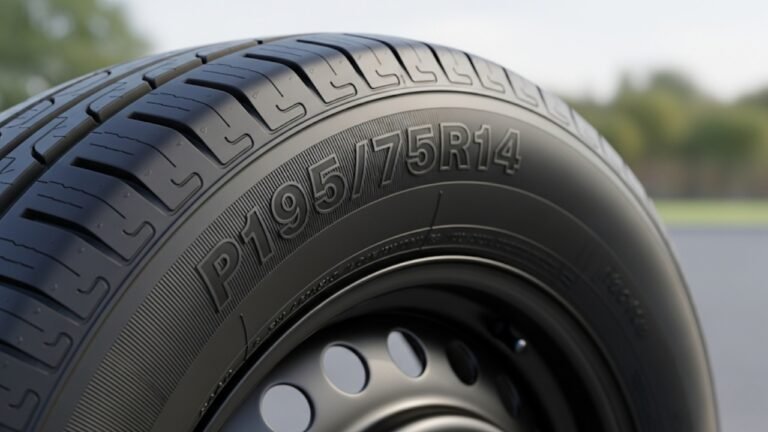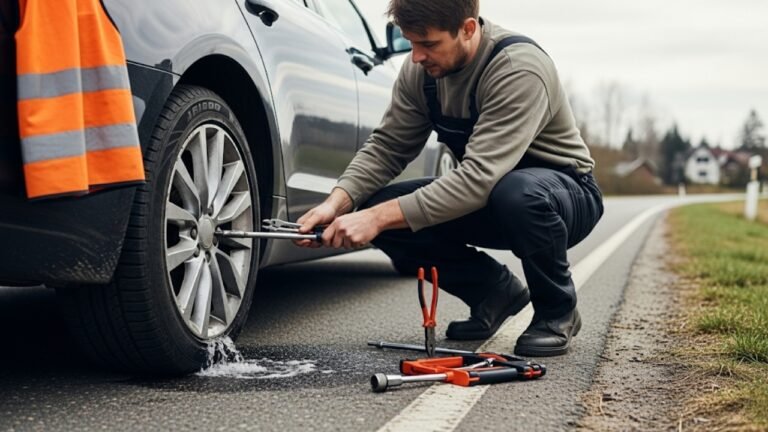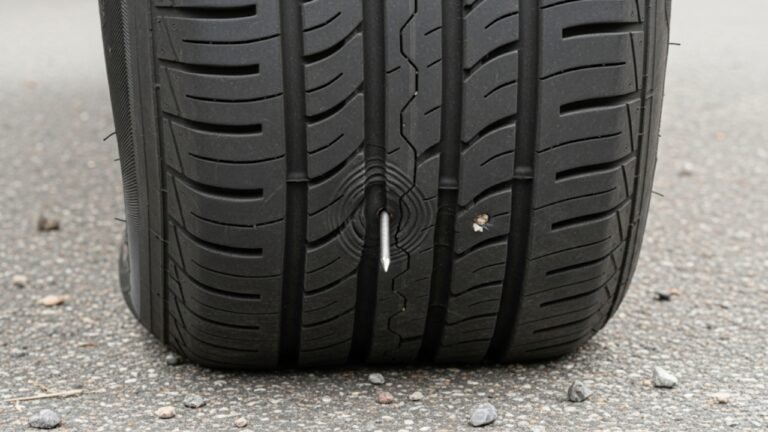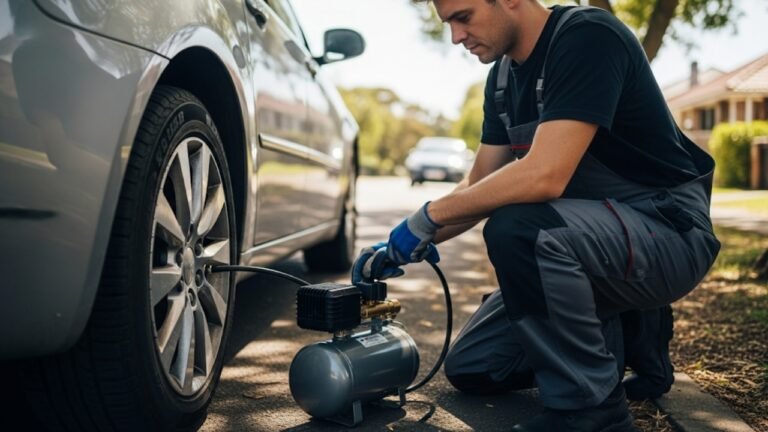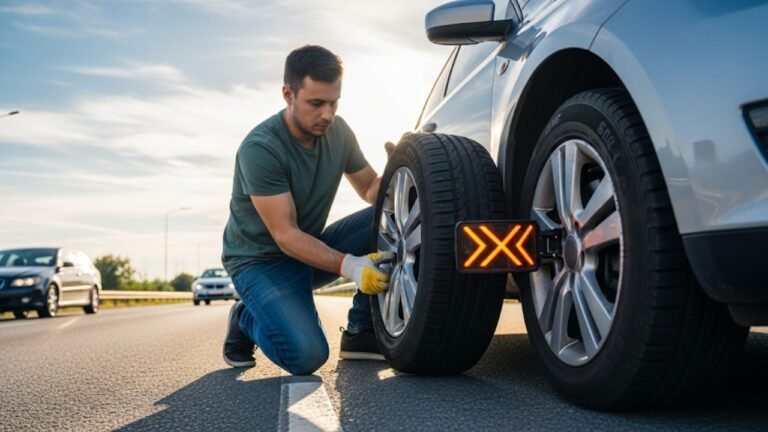What Tire Gives the Smoothest Ride?
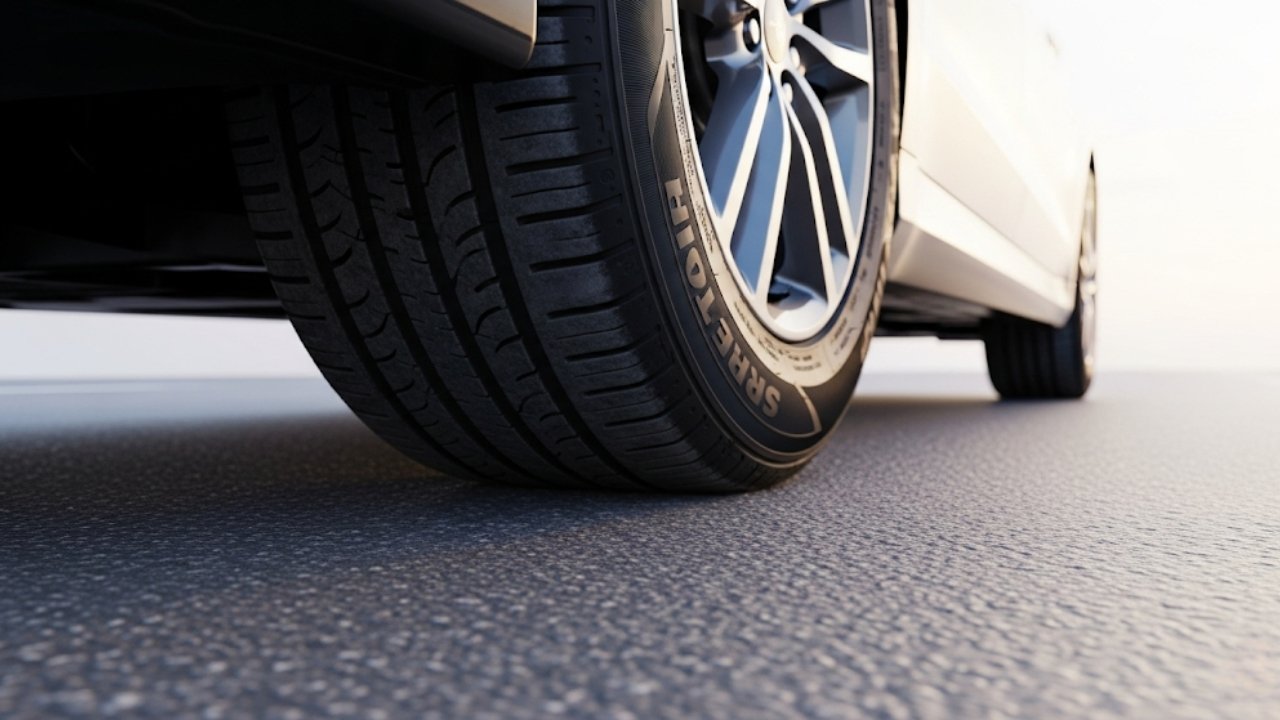
Ever taken a long drive and felt like your car was floating? That’s not magic — it’s your tires doing their job right. And not just any tire. The right one can make your ride feel like silk on asphalt.
A smooth ride isn’t just about comfort. It’s about safety, peace of mind, and sometimes even your sanity. I remember driving through Dhaka traffic with a set of budget tires. Every bump felt like a mini earthquake. My coffee spilled. My mood tanked. But once I upgraded to touring tires? Game-changer.
So, what tire gives the smoothest ride? If you’re tired of your teeth chattering every time you hit a pothole, you’re in the right place.
We’ll talk brands. We’ll talk types. We’ll break it all down like you’re chatting with your most trusted gearhead friend. Ready to ride smoother?
What Makes a Tire “Smooth”?
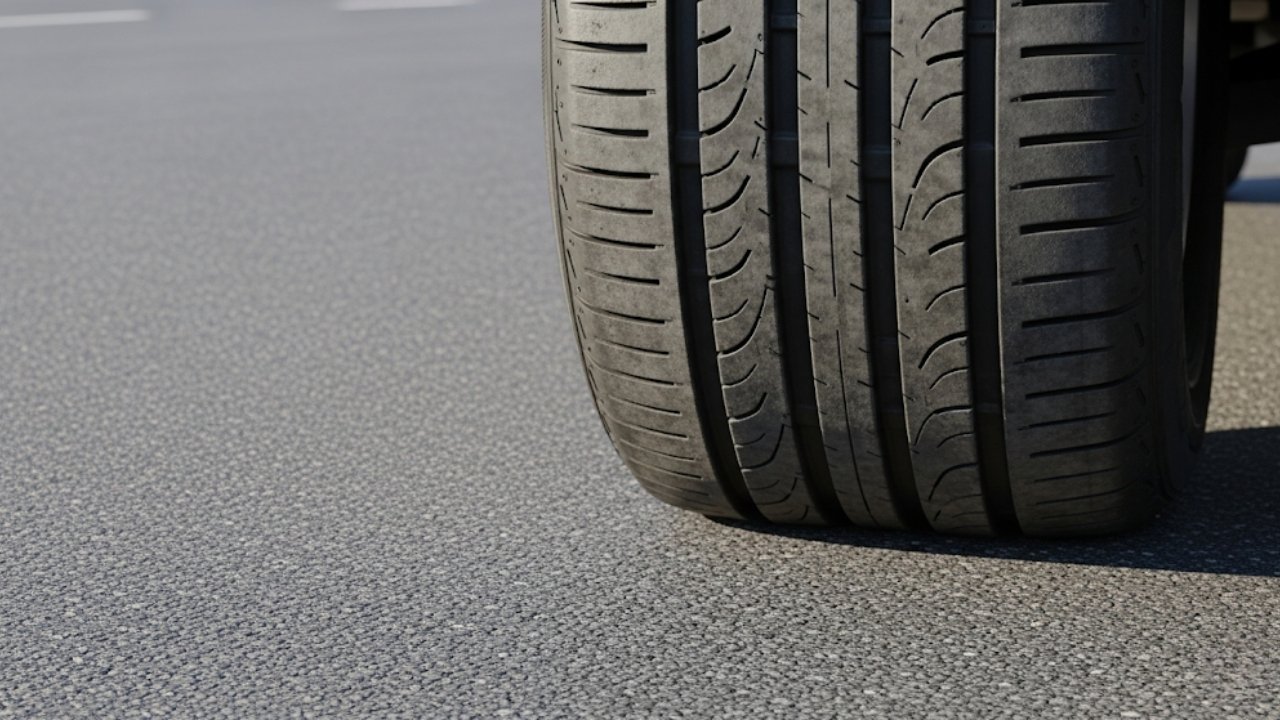
It means:
-
Less road noise.
-
Minimal vibration.
-
Better shock absorption.
-
Seamless handling over rough surfaces.
Here’s the thing: Not all tires are made equal. Some are stiff and sporty (great for racing, not so much for comfort). Others are soft, flexible, and absorb every road crack like a sponge.
Key Features of Smooth Tires:
-
Soft rubber compounds
-
Flexible sidewalls
-
Touring or grand touring design
-
Higher profile (more sidewall height)
-
Low rolling resistance
Think of it like this — some shoes are made for sprinting, others for cloud-like walking. Same with tires.
A high-performance tire hugs corners but feels rough. A touring tire? It’s your cozy slipper on wheels.
Types of Tires and Their Ride Quality
Tires aren’t just black circles. They’re specialized, just like shoes. And your choice affects how every mile feels.
Let’s walk through the most common tire types:
| Tire Type | Ride Comfort | Noise Level | Performance | Best For |
|---|---|---|---|---|
| Touring Tires | ⭐⭐⭐⭐⭐ | ⭐⭐⭐⭐⭐ | ⭐⭐ | Comfort & long drives |
| Performance Tires | ⭐⭐ | ⭐⭐ | ⭐⭐⭐⭐⭐ | Sporty handling |
| All-Season Tires | ⭐⭐⭐ | ⭐⭐⭐ | ⭐⭐⭐ | Year-round average |
| All-Terrain Tires | ⭐ | ⭐ | ⭐⭐ | Off-road vehicles |
| Winter Tires | ⭐⭐ | ⭐⭐ | ⭐⭐⭐ | Snow and ice |
For the smoothest ride, touring or grand touring tires are your best bet. They’re built for luxury. That’s why you’ll see them on sedans, premium crossovers, and executive cars.
Touring Tires: The Champions of Comfort
If you want to know what tire gives the smoothest ride, the answer is almost always touring tires.
They’re like a mattress for your car.
Why Touring Tires Rock:
-
Soft tread compounds that absorb shocks.
-
Wide footprints that evenly distribute weight.
-
Quiet patterns that muffle road noise.
-
Durable sidewalls that flex gently over bumps.
And here’s a little secret — they often last longer, too.
When I switched to Michelin Primacy MXV4 on my old Toyota Premio, I noticed the difference immediately. It was like someone muted the road.
Top 5 Tires That Deliver a Cloud-Like Ride
Here’s where the rubber meets the road. Below are five of the best tires for a smooth ride, based on user reviews, road tests, and real-world experience.
1. Michelin Primacy MXM4
-
Type: Grand Touring All-Season
-
Standout feature: Comfort Control Technology
-
Why it’s smooth: It adapts to road irregularities better than most. Great in both dry and wet conditions.
2. Bridgestone Turanza QuietTrack
-
Type: Touring All-Season
-
Standout feature: QuietTrack Technology
-
Why it’s smooth: It reduces vibrations with an internal cushioning layer. It’s whisper-quiet on highways.
3. Continental PureContact LS
-
Type: Grand Touring All-Season
-
Standout feature: EcoPlus+ Technology
-
Why it’s smooth: It balances ride comfort with fuel efficiency. Plus, it’s great in the rain.
4. Goodyear Assurance ComforTred Touring
-
Type: Touring
-
Standout feature: Extra cushioning layer
-
Why it’s smooth: Literally designed to feel like a pillow under your car.
5. Pirelli Cinturato P7 All Season Plus II
-
Type: Grand Touring
-
Standout feature: Low rolling resistance
-
Why it’s smooth: It glides effortlessly, saving gas and smoothing the ride.
Tire Size and Ride Comfort: Bigger Isn’t Always Better
Here’s something most people don’t realize — bigger wheels often mean a bumpier ride.
Why?
Because low-profile tires (shorter sidewalls) don’t absorb bumps well. They’re stiffer, designed for handling, not comfort.
So what should you look for?
-
Taller sidewalls (60 series and above).
-
Smaller rims (16–17 inches).
-
Standard tire pressure, not overinflated.
If you’re modifying your car, don’t go overboard with huge rims. You’ll feel every crack in the road.
Personal Story: The Tire That Changed My Life
I used to think tires didn’t matter that much.
Until one rainy day in Chittagong, I was driving my dad’s old Nissan Bluebird. We hit a patch of rough road at 60 km/h. The car jolted. My hands slipped. My heart skipped.
The tires were old, hard, and noisy.
Next week, we upgraded to Continental PureContact LS. It was like floating. The difference was night and day. Even the engine felt quieter.
It’s funny how something as simple as the right tire can change how connected you feel to the road — and to the journey.
Signs Your Tires Are Ruining Your Ride
Think your current tires are making your car feel like a donkey cart?
Look out for these signs:
-
Constant road noise.
-
Excessive vibration at high speed.
-
Harsh feel over potholes or speed bumps.
-
Your steering wheel shakes.
-
You feel tired after short drives (no joke — your body fights vibrations subconsciously).
If this sounds familiar, it’s time to explore what tire gives the smoothest ride — and switch.
Bullet Points: Quick Tips to Maximize Ride Smoothness
-
Use touring or grand touring tires.
-
Avoid low-profile tires unless needed for performance.
-
Stick to factory-recommended tire sizes.
-
Rotate and balance your tires regularly.
-
Don’t overinflate — it stiffens the ride.
-
Choose tires from trusted brands like Michelin, Continental, and Bridgestone.
Do Seasons Affect Tire Smoothness?
Absolutely. Temperature, moisture, and road texture all impact how your tires feel.
Summer Tires:
-
Designed for dry and wet roads.
-
Made with softer rubber for better grip.
-
Can be very smooth, but they harden in cold temperatures.
Winter Tires:
-
Built to stay soft in freezing temperatures.
-
The tread is chunkier, so they’re not as smooth on dry roads.
-
Still, if you live in snowy areas, they’re a safer and more comfortable option than struggling on all-seasons.
All-Season Tires:
-
The jack-of-all-trades.
-
Deliver moderate smoothness in all conditions.
-
Not as soft as summer tires, but more consistent year-round.
So, if you want year-round ride quality, look for touring-style all-season tires. They’re engineered for comfort no matter what month it is.
Are New Tires Always Smoother?
Here’s a surprise — not always, at least not immediately.
New tires sometimes need a break-in period. For the first 500 to 800 kilometers:
-
The rubber may feel a little stiff.
-
You might hear a slight hum.
-
It takes time for the tire to settle into its optimal shape and grip.
But once broken in? You’ll feel the smoothness set in like a cozy blanket.
Used Tires Warning:
Buying used tires might seem like a money-saver, but they often:
-
Have uneven wear.
-
Lose rubber flexibility.
-
Miss the original comfort they were designed for.
So if smoothness is your goal, go new — or at least choose gently used ones with full tread depth and no sidewall damage.
Debunking Common Tire Myths About Ride Comfort
Let’s kill a few old wives’ tales:
❌ Myth #1: “Performance tires are always better.”
Reality: Better for speed, not for comfort. They’re stiff and loud.
❌ Myth #2: “Low-profile tires look cool, so they must be better.”
Reality: They look sleek but offer less cushioning.
❌ Myth #3: “All brands feel the same if the size fits.”
Reality: Brand tech matters. Michelin’s comfort layer isn’t found on a cheap tire.
❌ Myth #4: “More expensive means smoother.”
Reality: Price doesn’t always reflect ride feel. Some mid-range tires like the Kumho Solus TA11 ride softer than pricier ones.
FAQs: Everything You’ve Wanted to Ask About Smooth Tires
1. What tire gives the smoothest ride for SUVs?
Look into Michelin Defender LTX M/S or Bridgestone Dueler H/L Alenza Plus. Both are premium SUV touring tires built for comfort.
2. Which tires reduce road noise the most?
Bridgestone Turanza QuietTrack is known for its noise-canceling design. It’s like Bose headphones for your car.
3. Can wheel alignment affect how smooth tires feel?
Absolutely! Misalignment causes uneven wear and makes even the best tires feel bumpy. Always align when installing new tires.
4. Is nitrogen inflation smoother than air?
Not really. Nitrogen maintains pressure longer, but the ride feel stays the same.
5. Do run-flat tires offer a smooth ride?
No. They’re stiff by design, to allow you to drive after a puncture. Great for safety, but not for comfort.
6. How do I know if a tire is a touring type?
Look for tags like “Touring,” “Grand Touring,” or “Comfort” on the sidewall or in the product name online.
7. What tire gives the smoothest ride for sedans?
Continental PureContact LS or Michelin Primacy MXM4 are top choices for sedans seeking cloud-like comfort.
8. Do heavier cars ride smoother?
Sometimes. Heavier cars press down more on the tires, which helps the suspension and tire absorb more vibration — but tire quality still matters most.
Table: Quick Comparison of Top Smooth-Ride Tires
| Tire Model | Type | Smoothness Score (1-10) | Noise Level | Ideal Vehicle |
|---|---|---|---|---|
| Michelin Primacy MXM4 | Grand Touring | 9.5 | Low | Sedans |
| Bridgestone Turanza QuietTrack | Touring | 10 | Very Low | Luxury sedans |
| Goodyear Assurance ComforTred | Touring | 9 | Low | Family cars |
| Continental PureContact LS | Grand Touring | 9 | Medium | Mid-size sedans |
| Pirelli Cinturato P7 Plus II | Grand Touring | 8.5 | Medium | Coupes/Sedans |
Final Verdict: So, What Tire Gives the Smoothest Ride?
If you’ve stuck with me this far, you now know: touring tires — especially from top-tier brands like Michelin, Bridgestone, and Continental — are your best path to driving comfort.
But here’s the deal: smoothness isn’t one-size-fits-all.
Your driving style, local roads, weather, and even your car type matter. A luxury sedan in Dhaka traffic needs a different tire than a family van cruising California highways.
Still, one truth holds:
The right tire can turn any drive into a journey.
The wrong one can make every trip a chore.
So take the time to choose right. Your back, your ears, and your soul will thank you.

